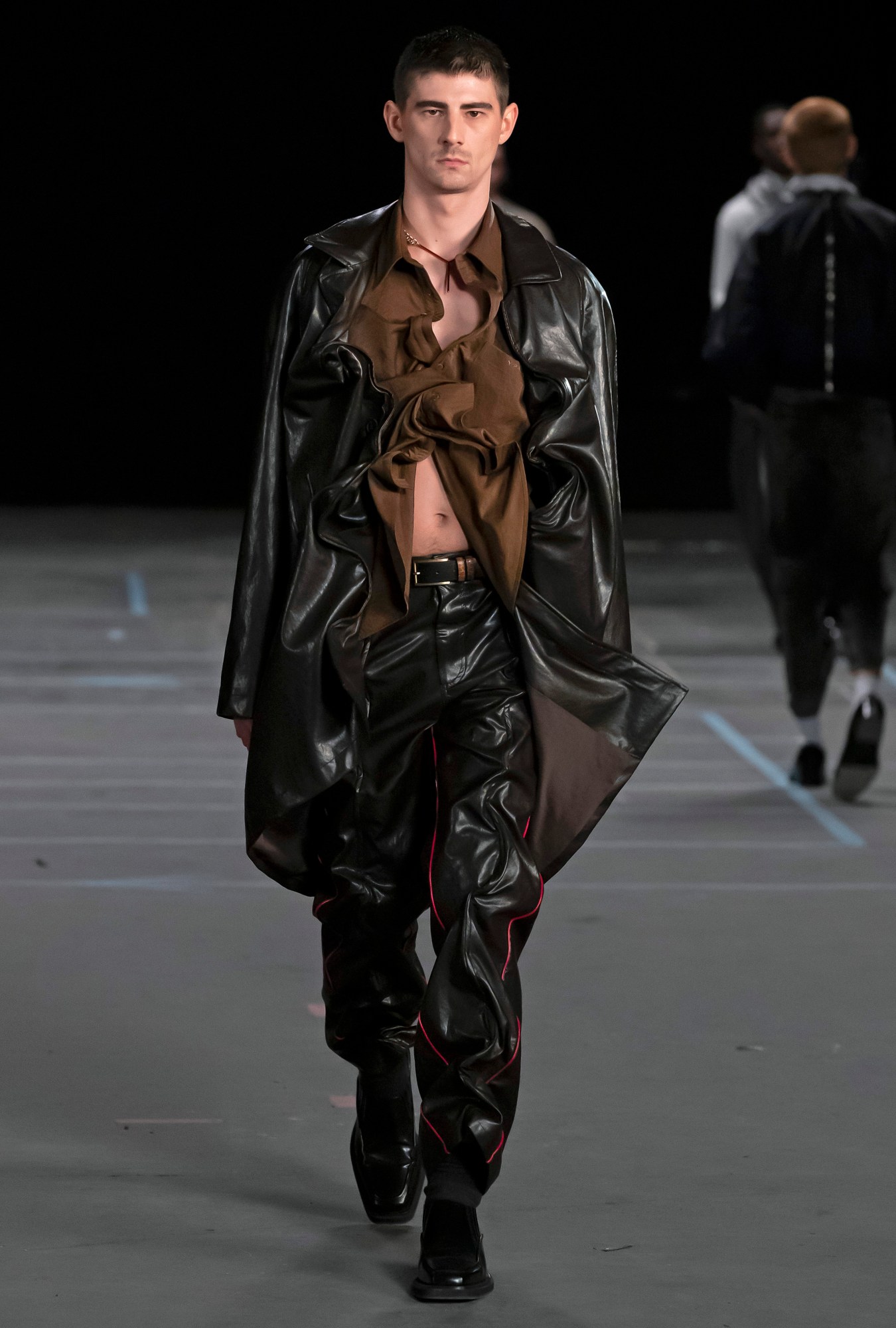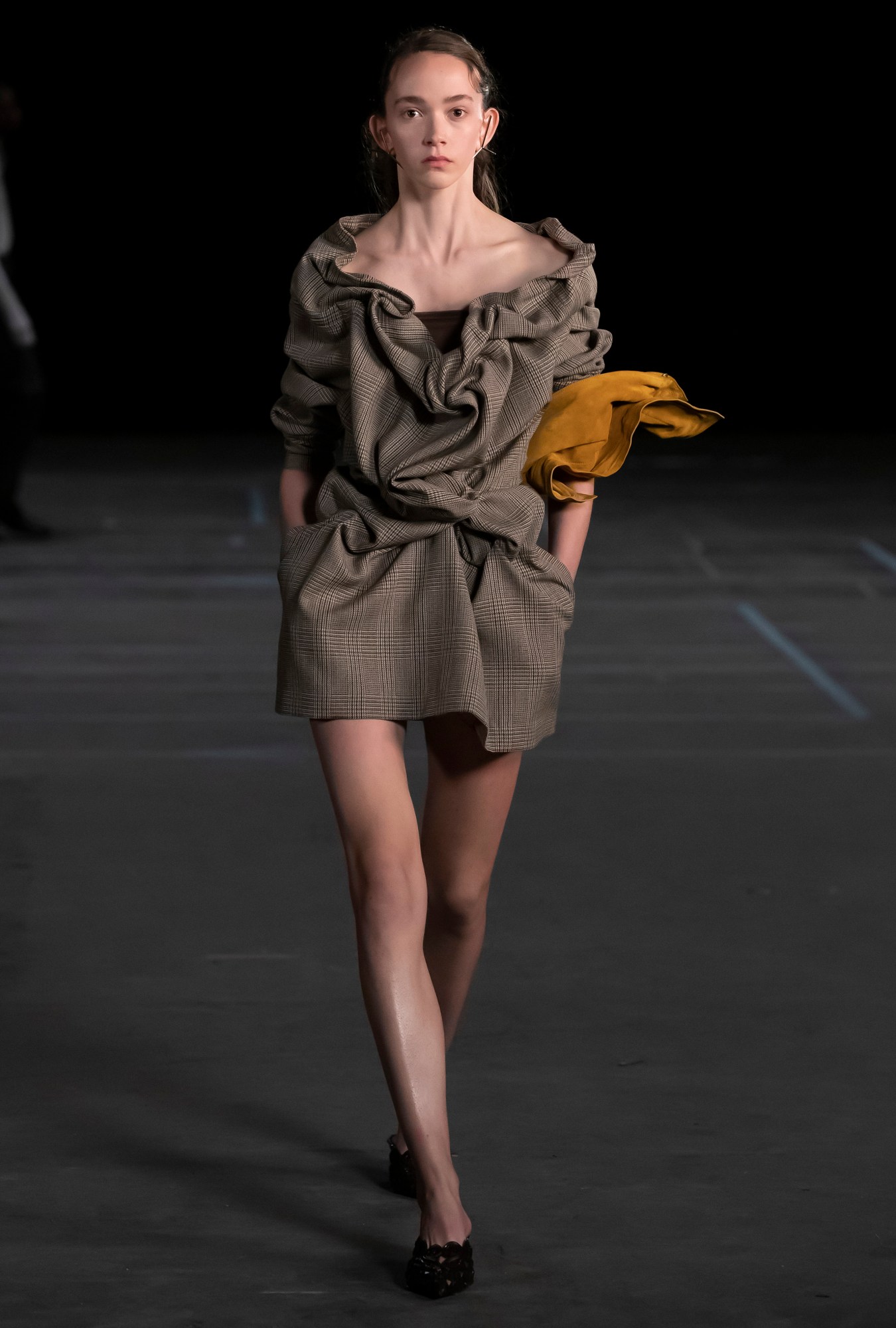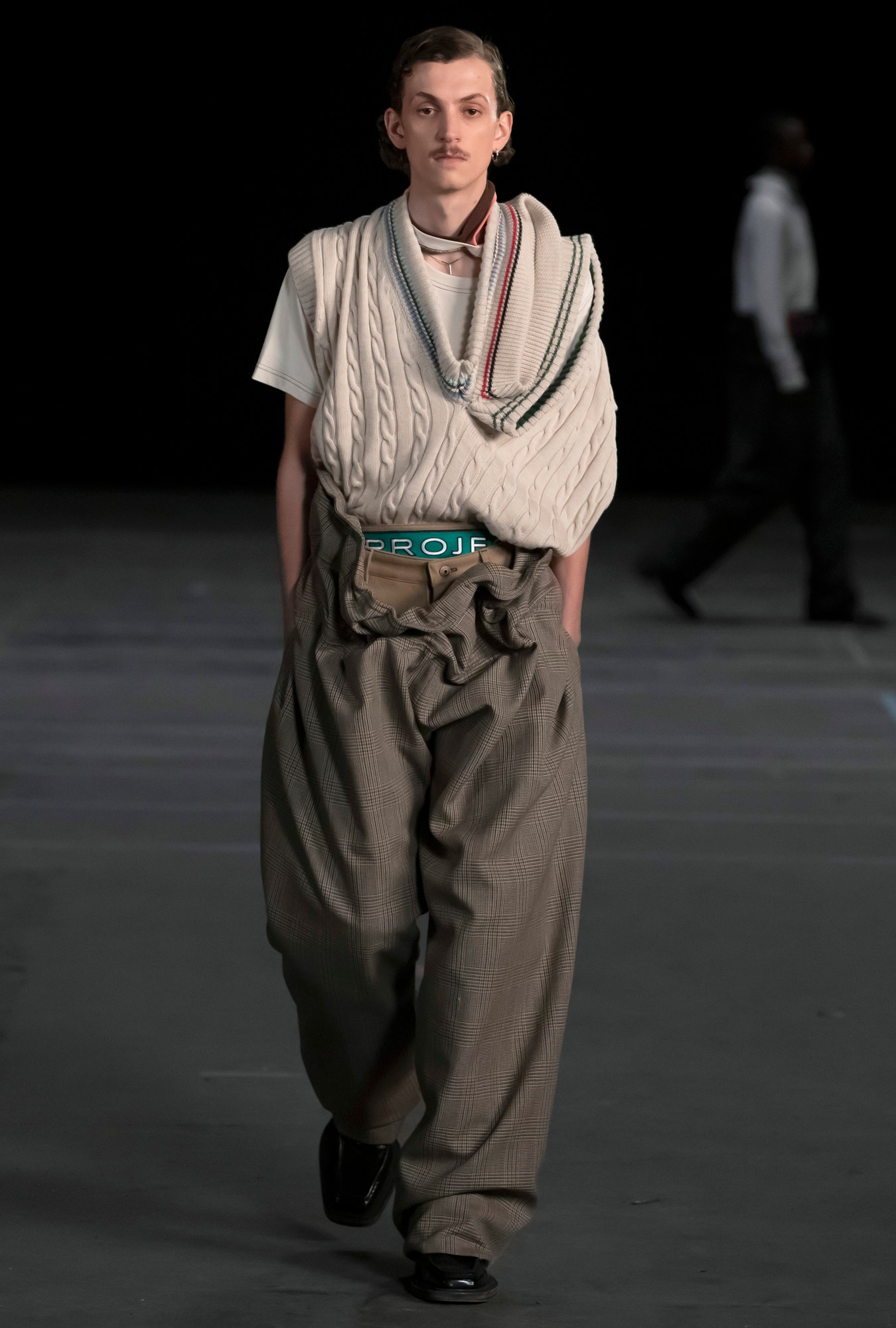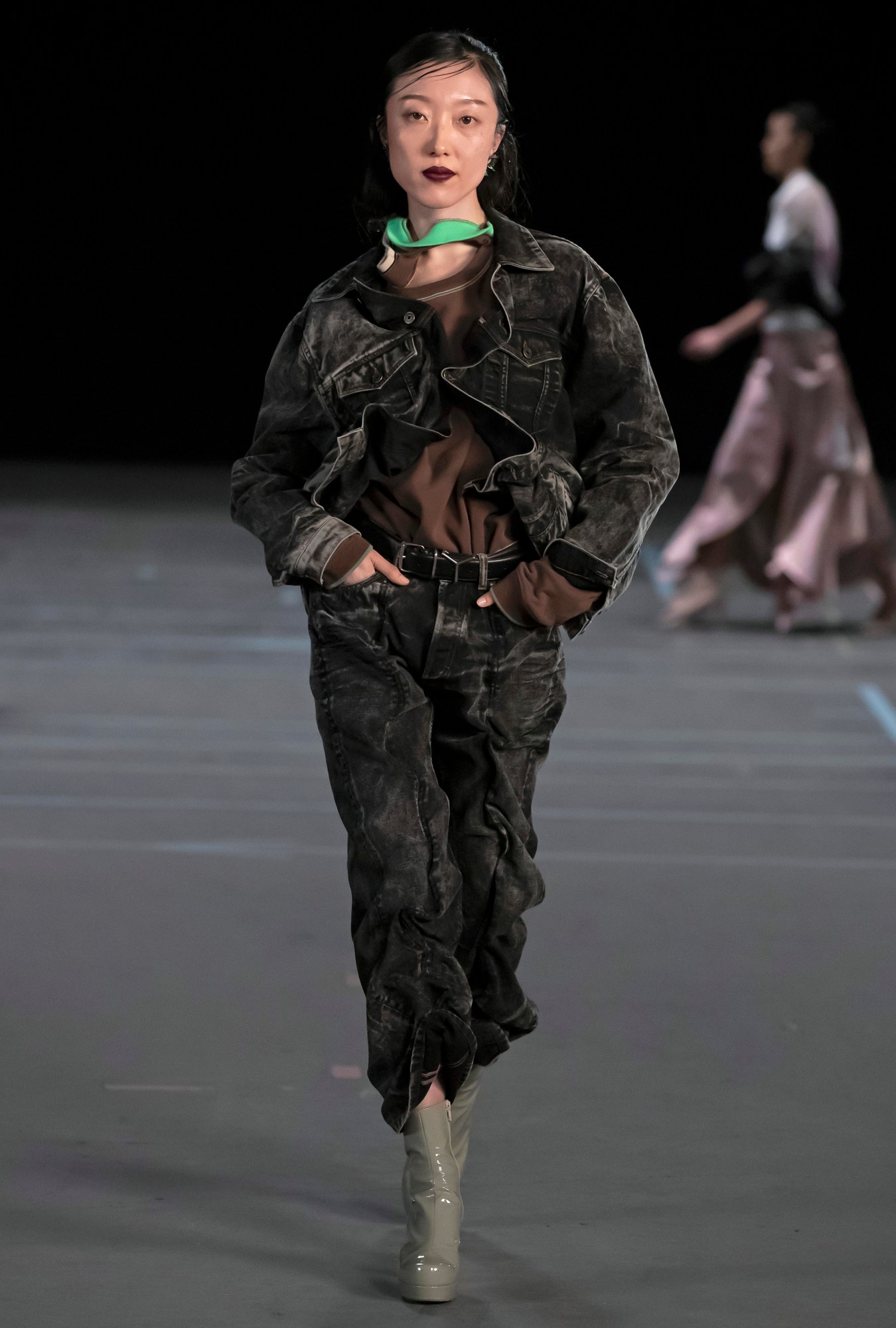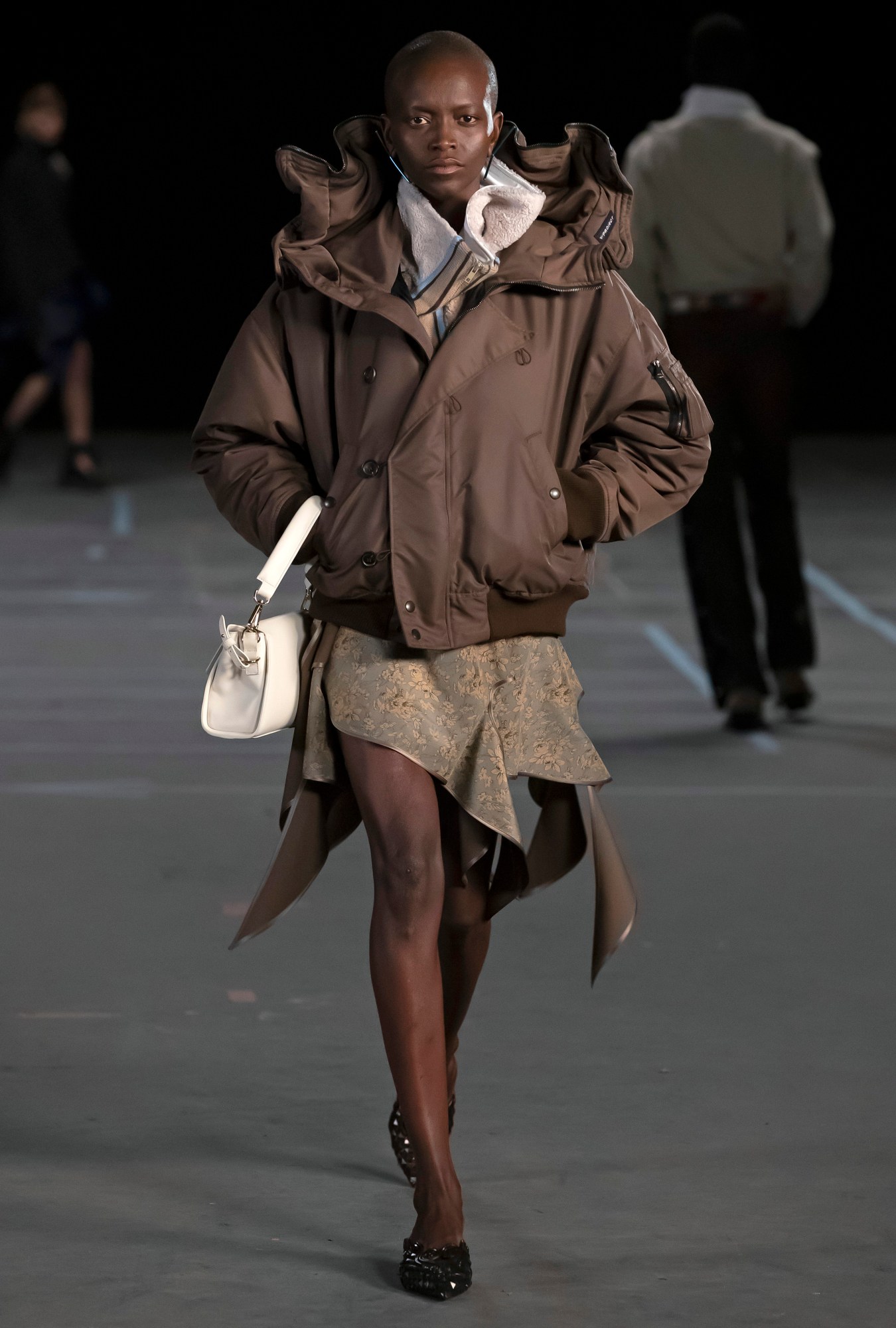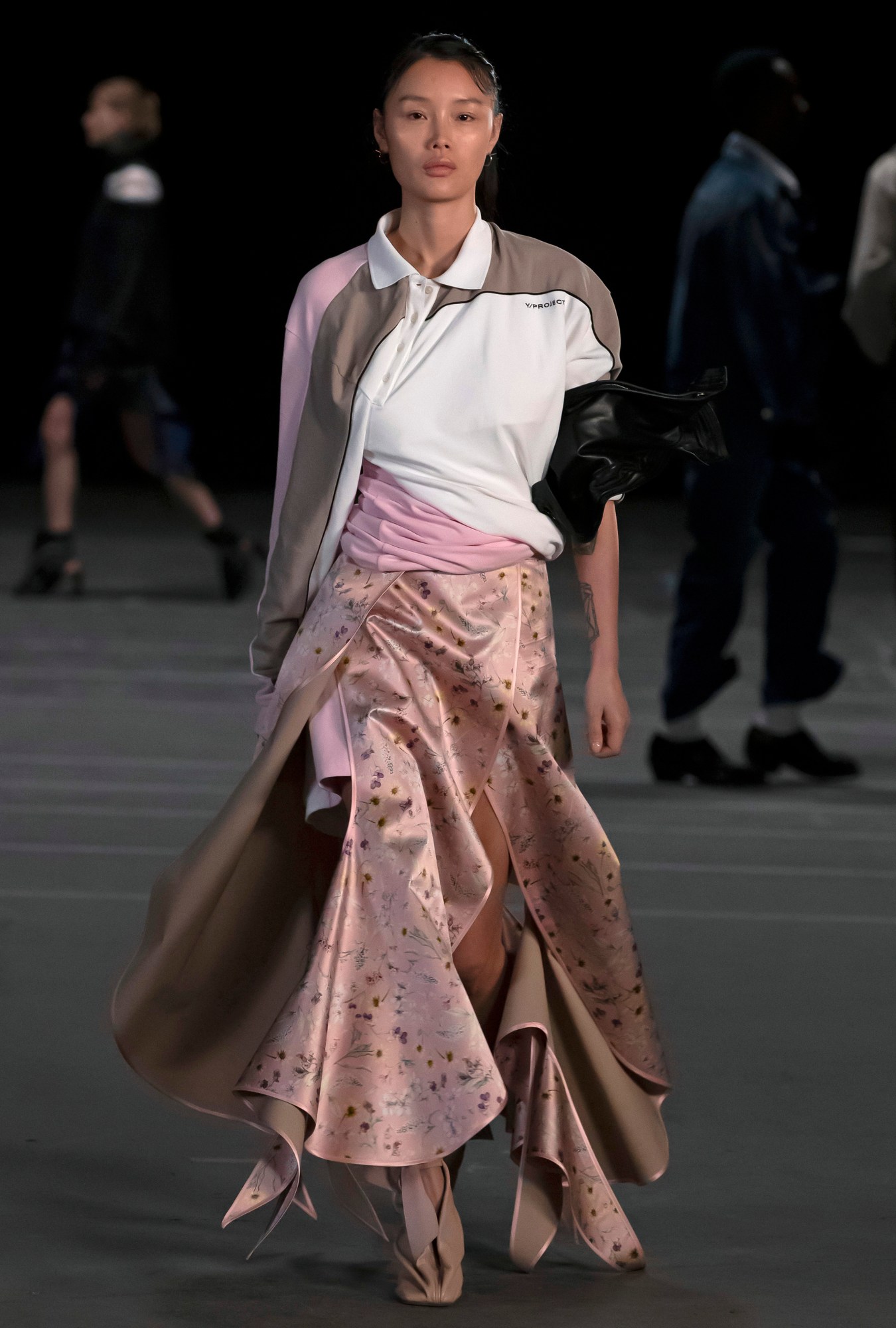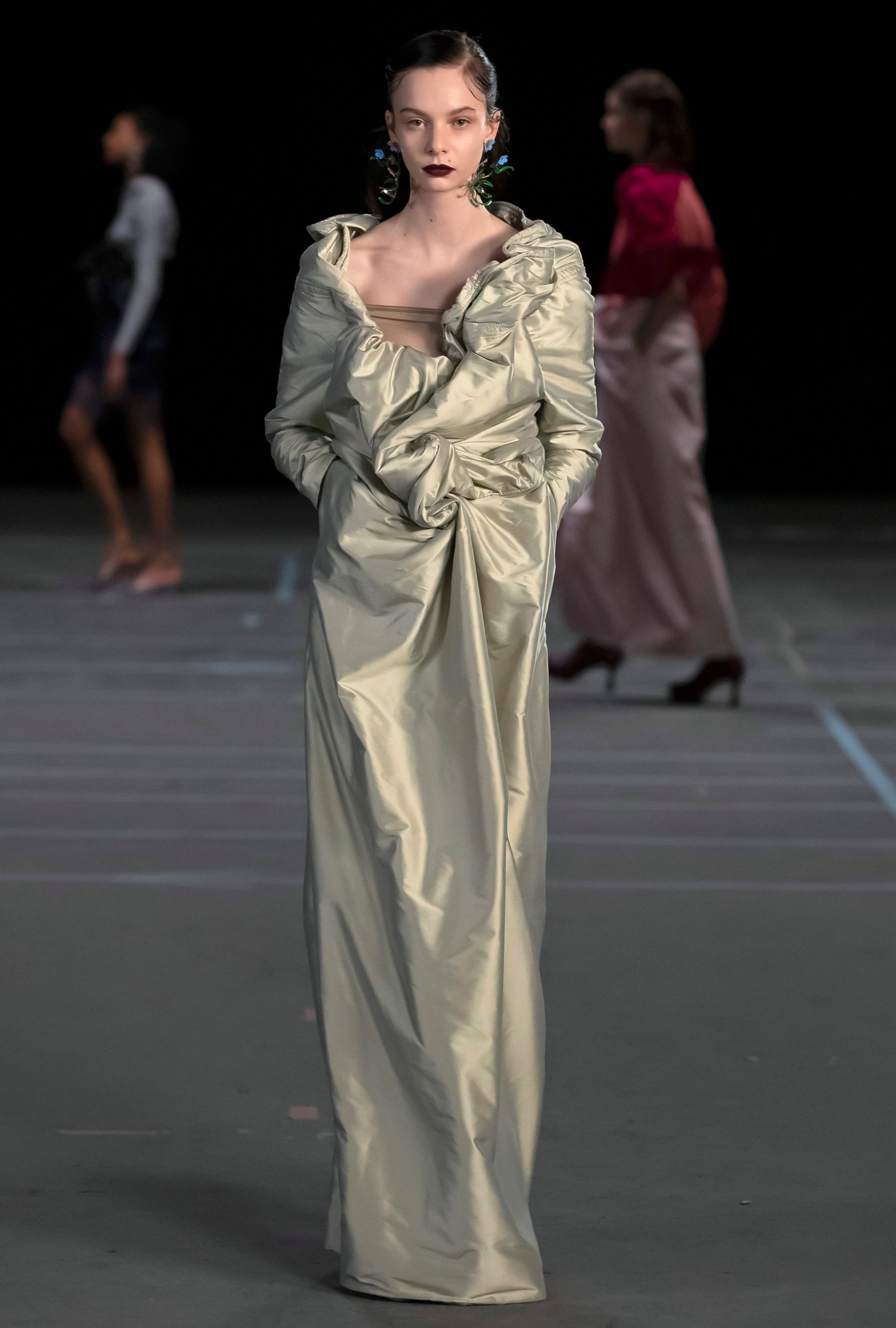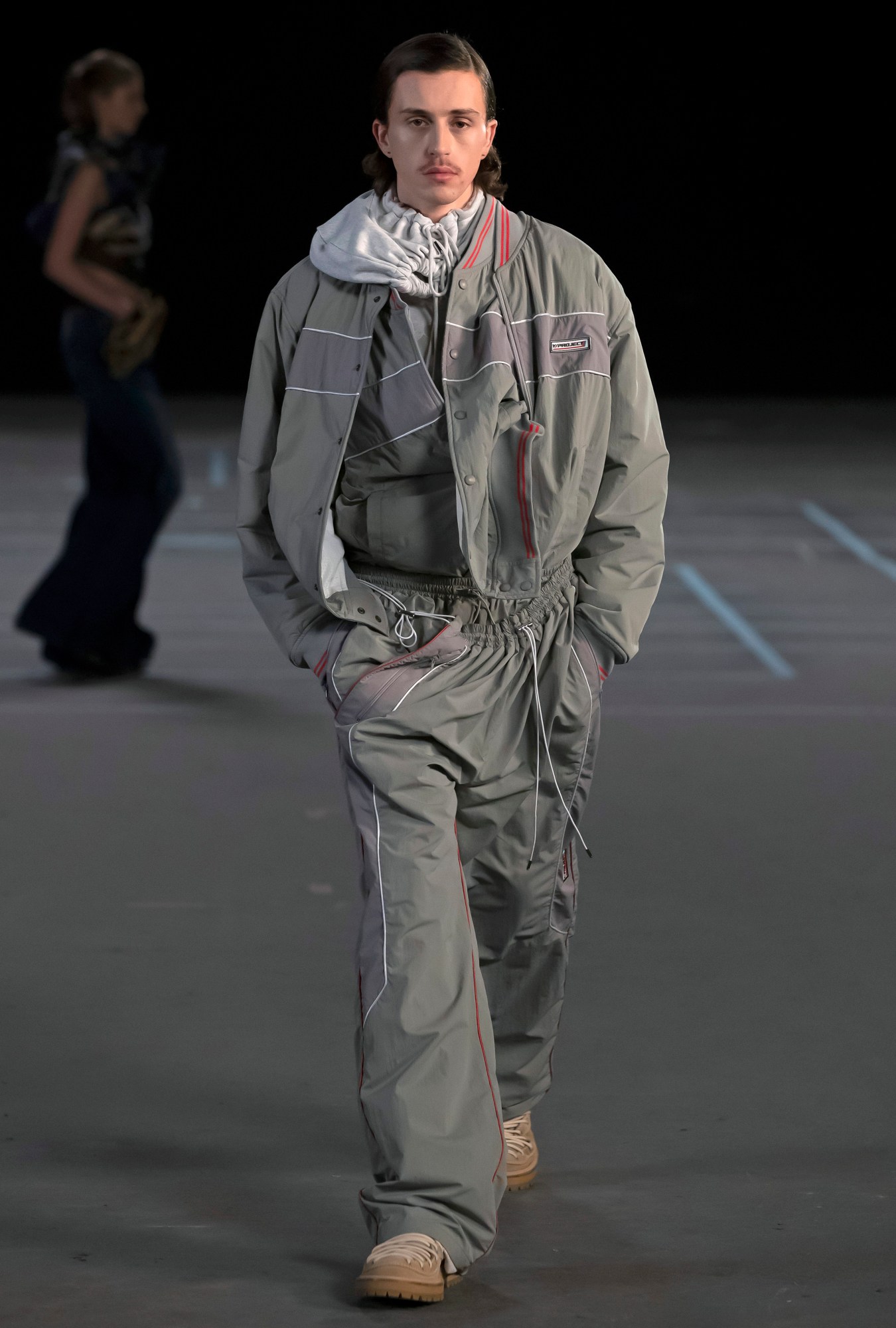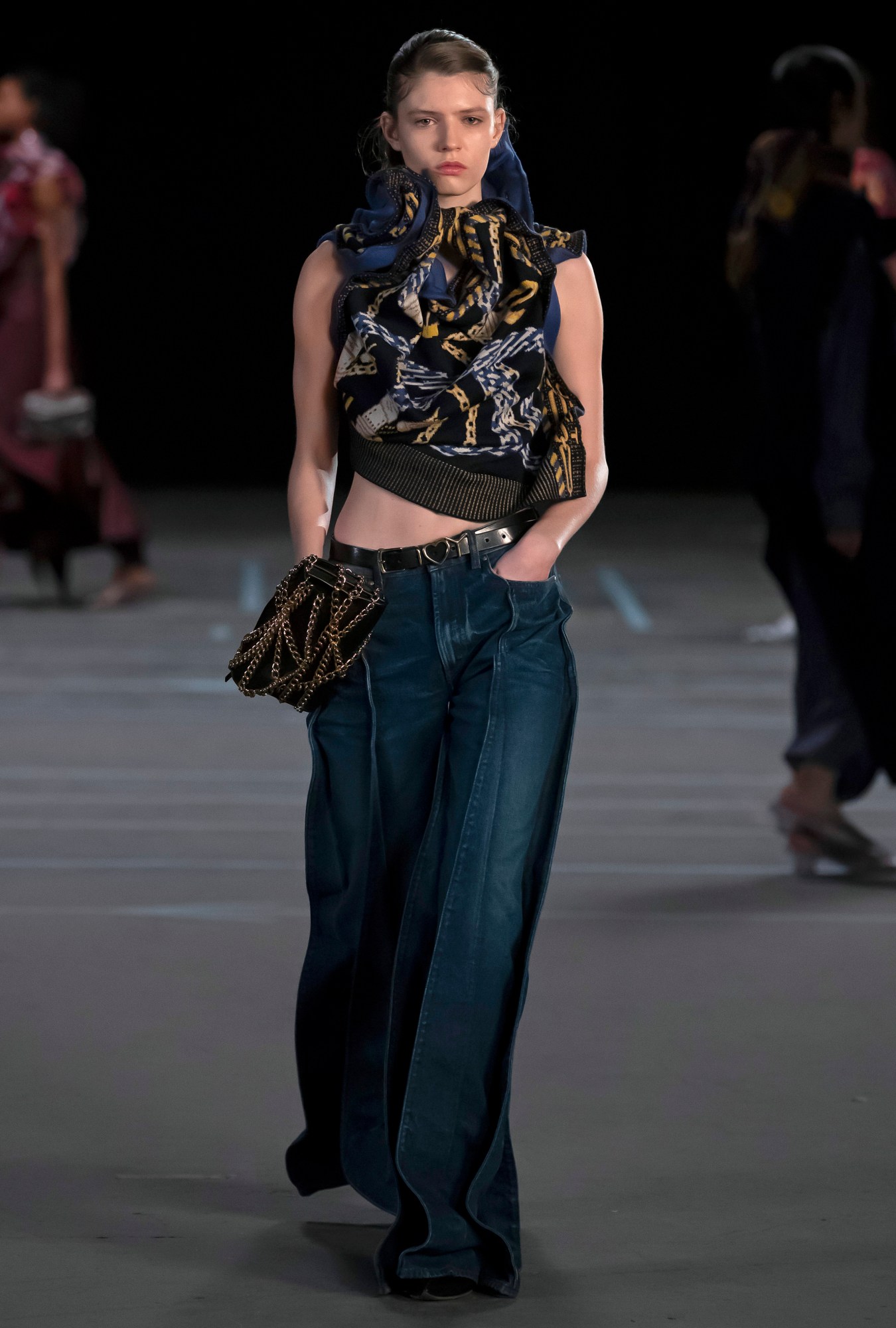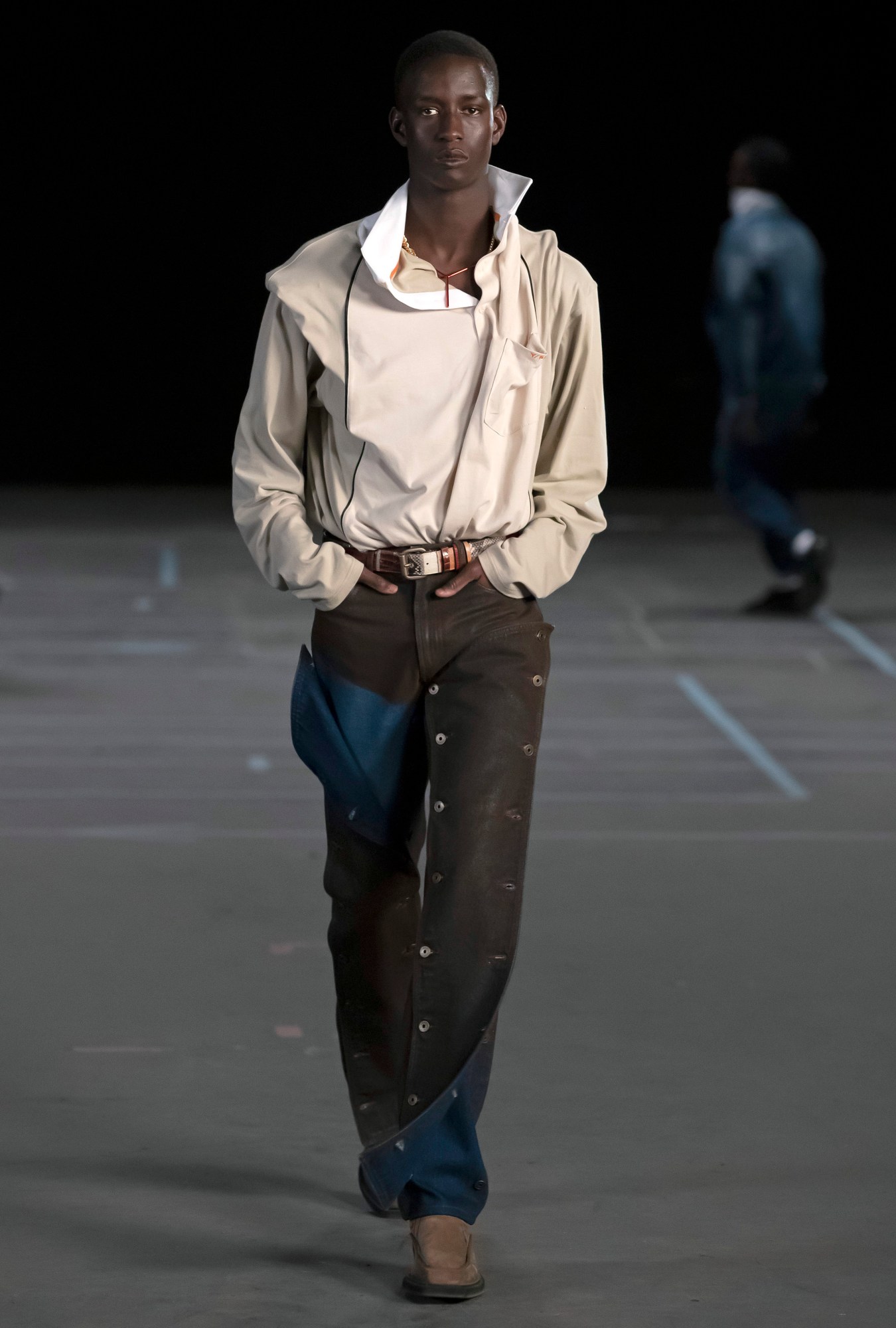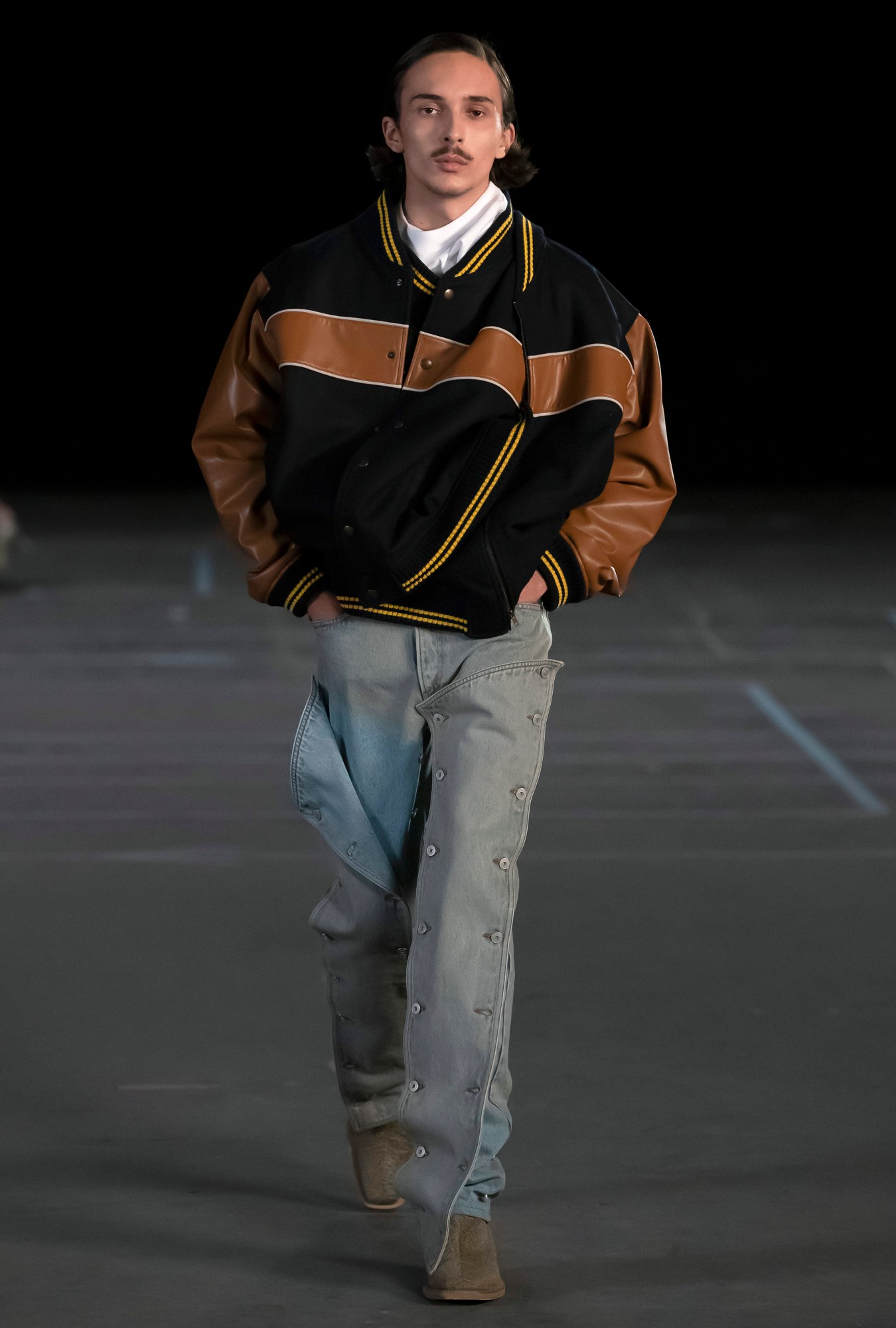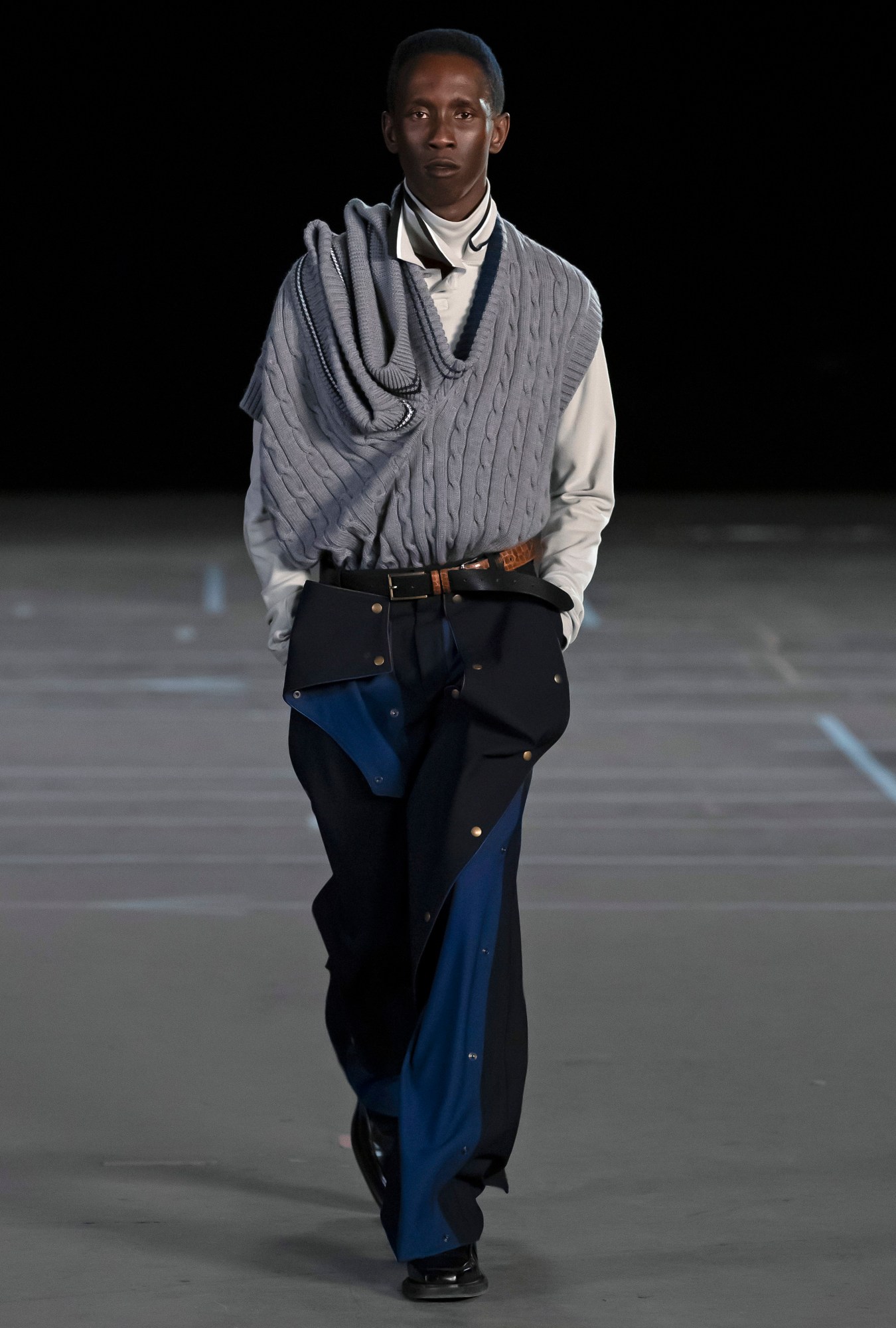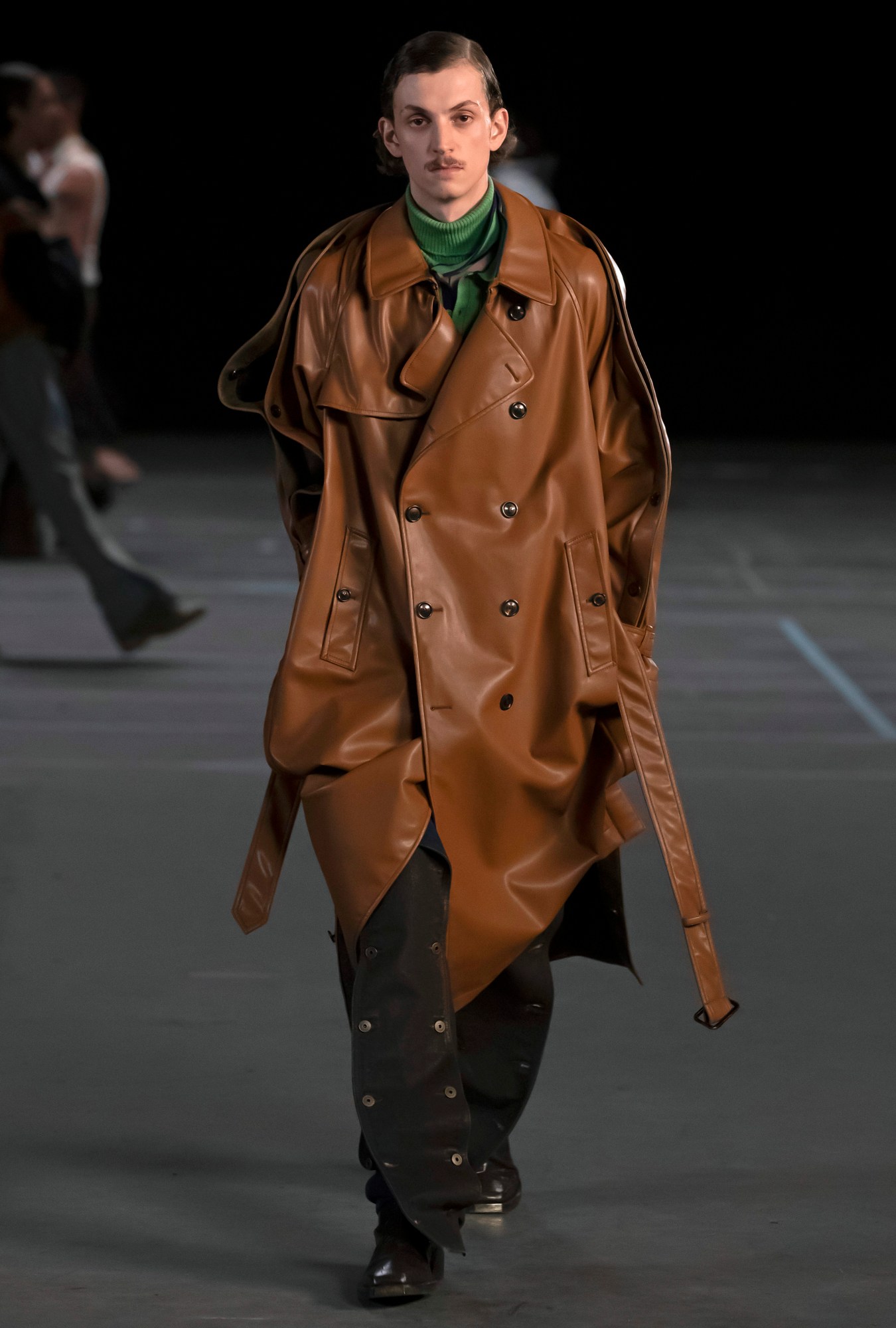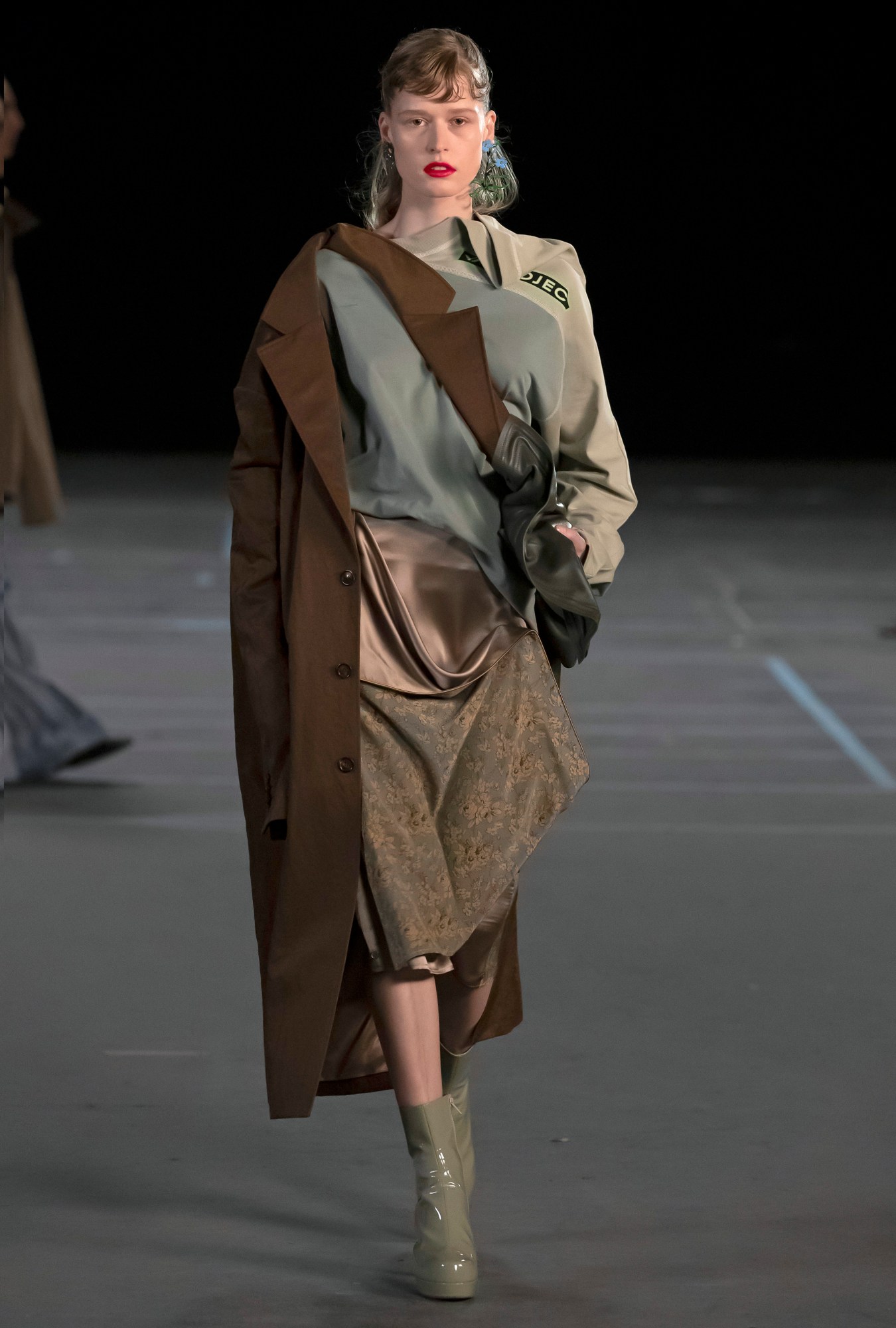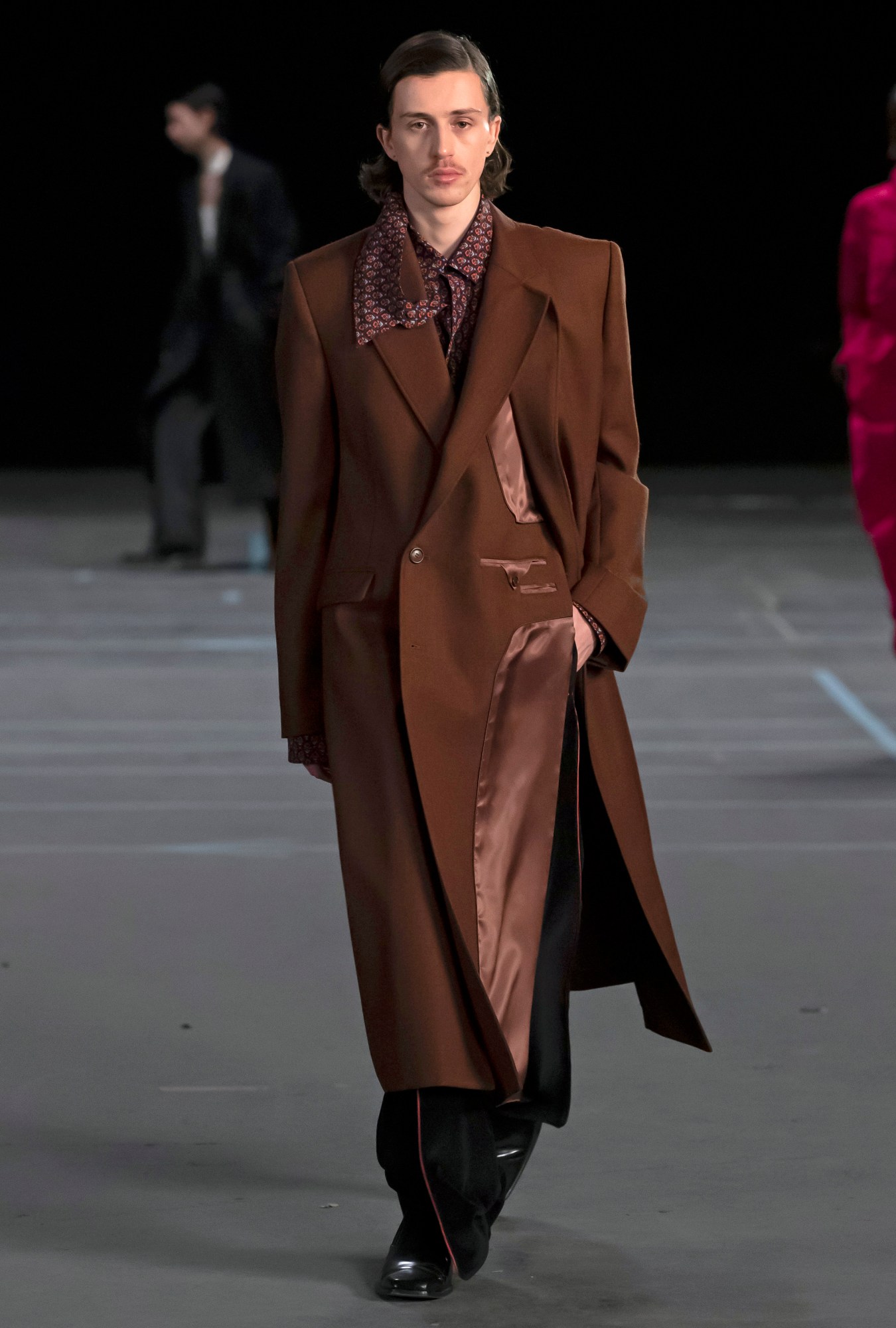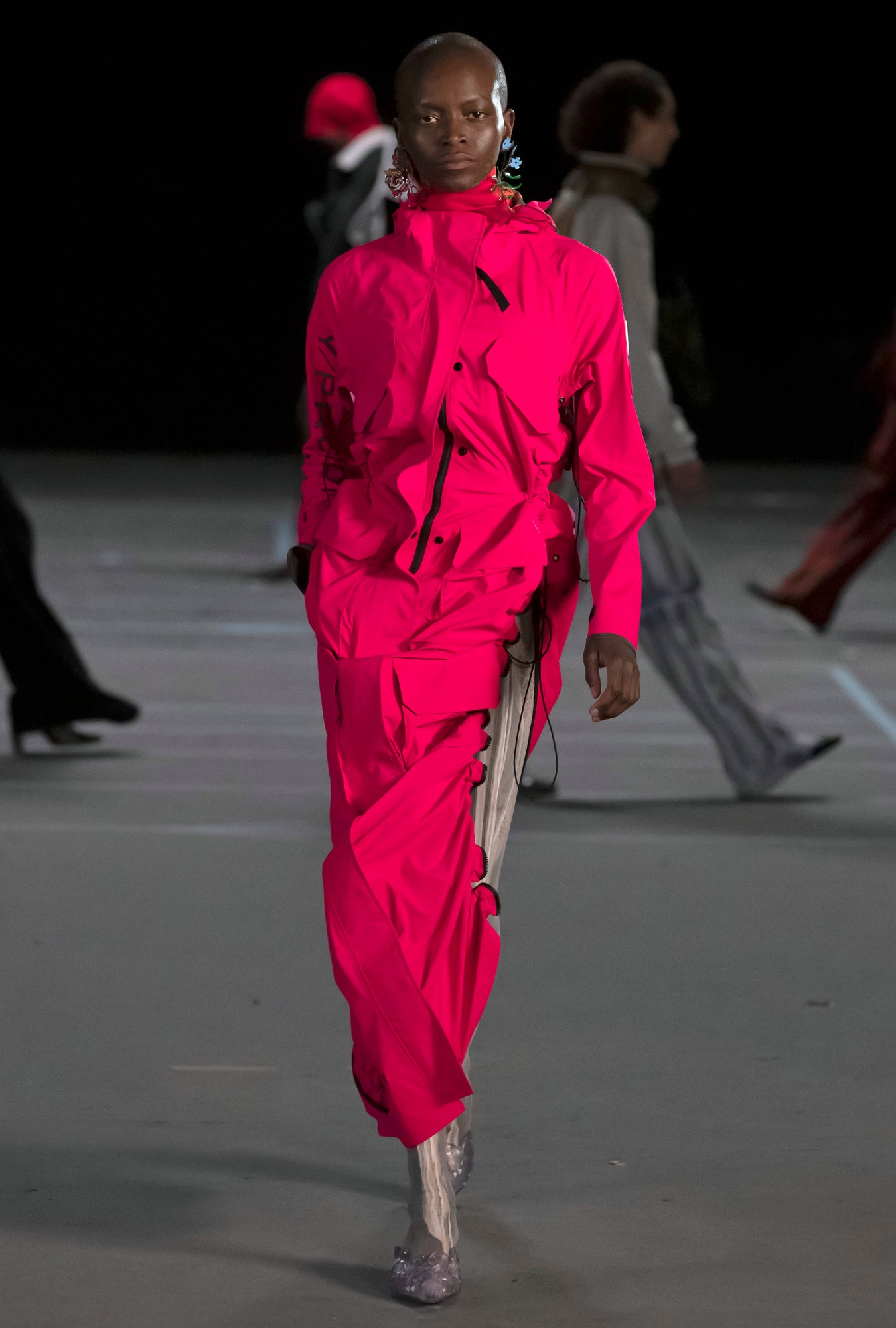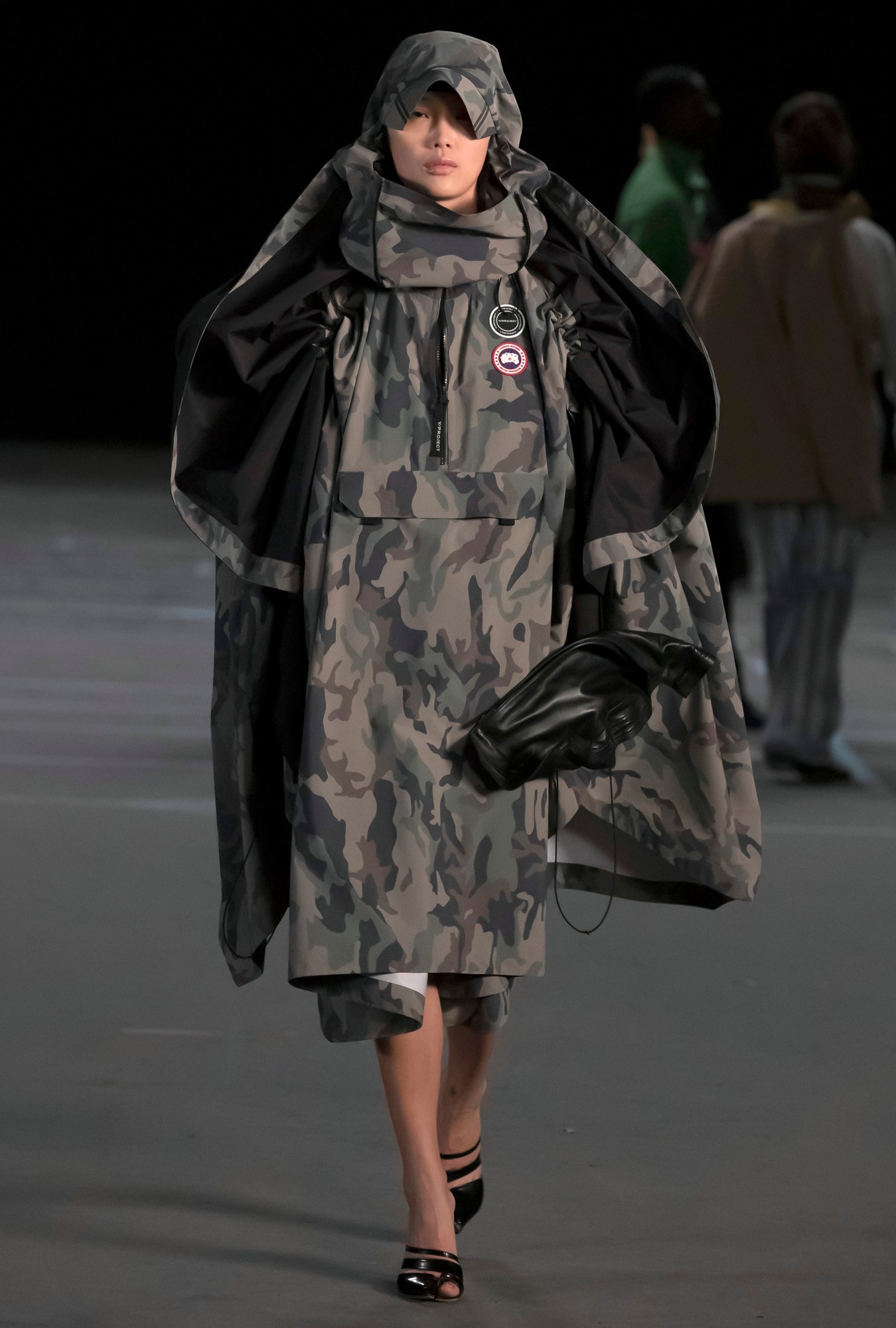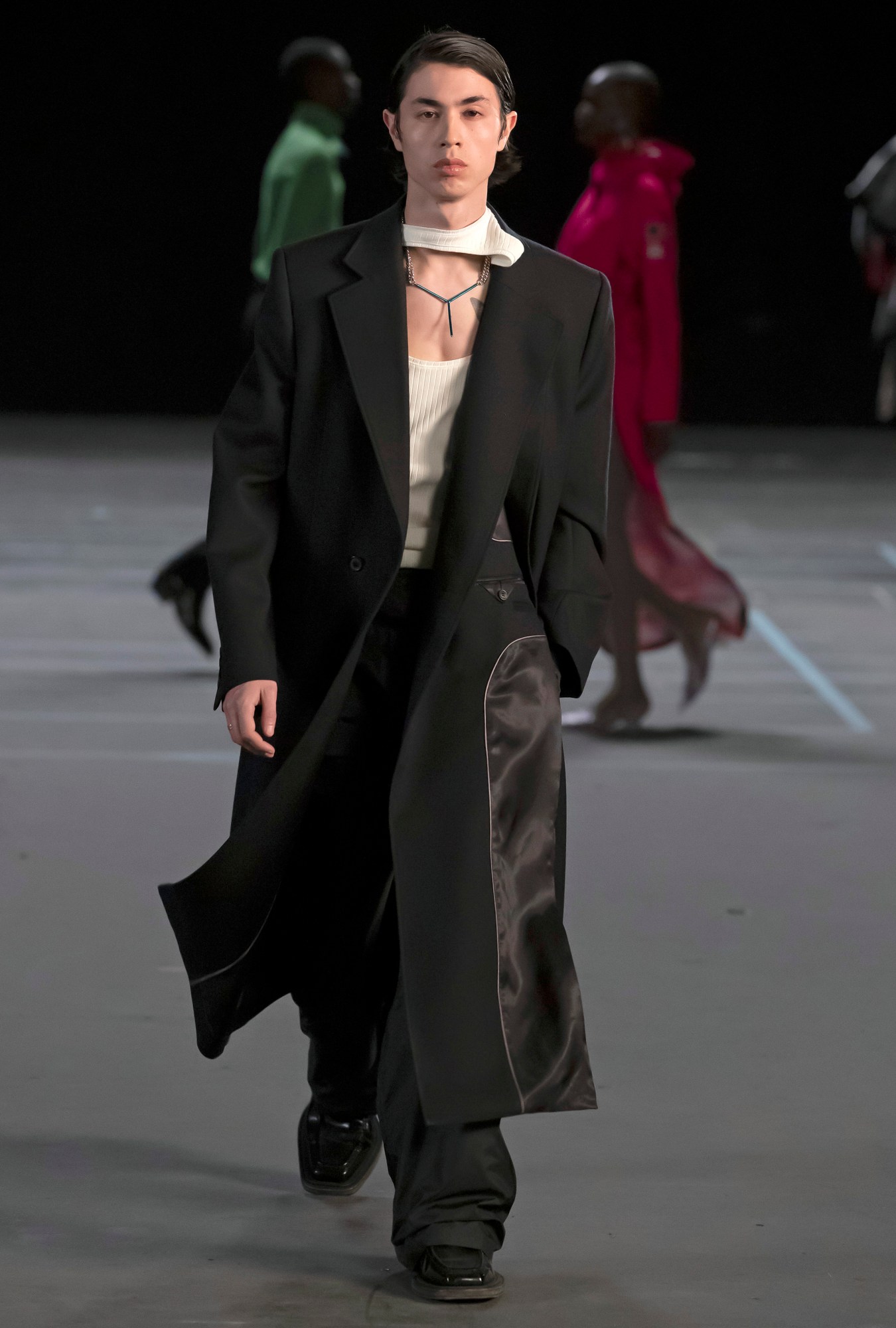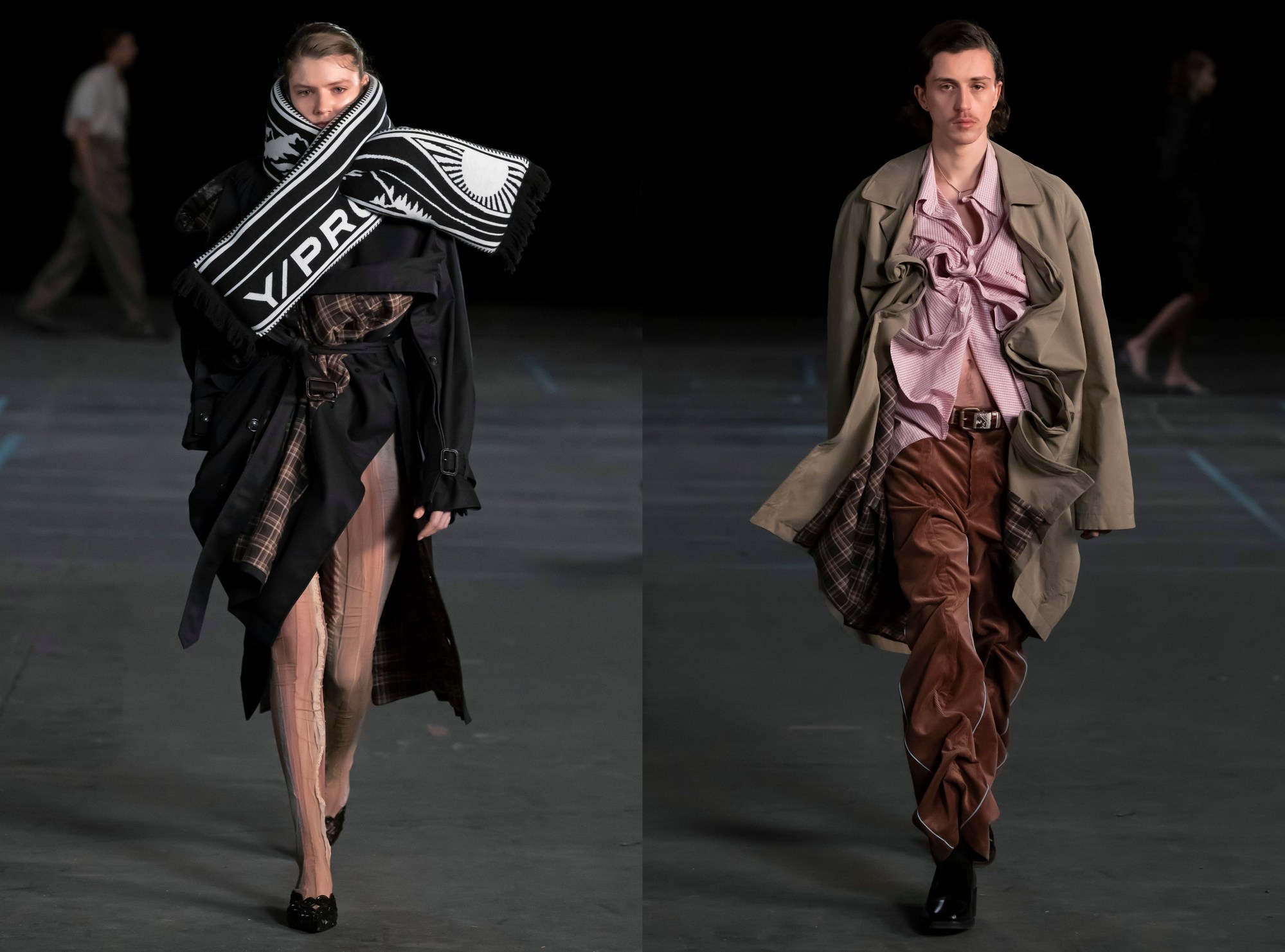If ever you’re on the hunt for plain and simple threads, Y/Project is the last place you should head. “We will never have your basic blazer or a basic hoodie,” Glenn Martens, the Parisian label’s creative director, asserts with breezy conviction. “We’ll never have purely commercial pieces, because fashion and luxury, for us at least, is about craftsmanship, an artistic way of thinking.” Indeed, since taking up the helm of the brand in 2013, Glenn has made a name for just that: ingeniously off-kilter clothing that unpicks preconceptions of how garments should look, or even be worn.
As out-of-this-world as what’s presented four times a year on the Y/Project runway may seem, its source material is often things you’ll find hanging in your wardrobe. The cornerstone of the label’s unique sartorial grammar is taking these staples and fucking with them, casting them out into fashion’s uncanny valley to open our eyes to the potential that lies in skewing clothes we typically take for granted — who’d have thought, for example, that making denim ‘janties’ would create such a stir?
The brand’s experimental motivations have, according to Glenn, caused it to be “seen as this kind of outsider, like we’re this fun little quirky brand. I’m not sure that we’re always taken so seriously at the end of the day,” ‘Fun’ and ‘quirky’ we’ll allow. But ‘little’? Certainly not. The numbers speak for themselves, with over 200 stockists and a bustling studio team, Y/Project is no minnow.
AW21, then, is when that perception changes once and for all. Described in the press notes as “the brand’s evolution to an established house in the Parisian fashion landscape,” this season marks the biggest, boldest collection Y/Project has put out yet. A sign of the industry’s changing tides, Glenn and the gang have opted to present menswear and womenswear together from this season onwards — a move that makes even more sense in light of his recent appointment to the top role at Diesel. While the decision hasn’t trimmed down the volume of work — as the 64 looks here prove — it has freed up some time — “We now have six months to prepare the whole collection, which means that we can go much deeper in terms of design,” Glenn says. “Sometimes we develop these crazy concepts, but it’s already too late to create a proper story around it. We always have at least one or two pieces on the catwalk that will be the most creative and experimental ones, but we never really managed to go deeper and translate these ideas into real ready-to-wear.”
From the first looks, it’s clear that he’s managed to make that wish a reality. The funhouse mirror proportions of trench coats and corduroy trousers, leather jackets and tweed dresses worn with pouches clasped beneath the arm are a testament to the brand’s experimental flair. Borrowing a technique first explored for AW17, malleable metal wires are threaded through the garments, allowing the wearer to create silhouettes that look like they’ve been frozen in the midst of a gale. Flatten these pieces out, though, and they look like (relatively) normal, wonderfully well-made clothes.
A tension between the ordinary and the absurd has always been the beat that carries Y/Project along, but it resonates especially strongly at a time when ‘normality’ as we once knew it lingers in an existential K-hole. That’s the feeling that emanates from the bourgeois cable-knit sweaters given modular three-neckhole makeovers, or the varsity jackets and tech-y tracksuits that are warped and spliced as if fed through the DeepDream generator. Then there are muddy denim jeans with buttoned-on panels that peel off to reveal an untainted indigo leg beneath; bobbled, see-through Cinderella mules (the product of a collaboration with Brazilian jelly shoemakers Melissa); and tailored coats with inverted front panels, exposing the typically concealed inner pockets and satin lining. Reading all that may get your head spinning, but it all boils down to clothes that are both incredibly sophisticated and accessible; fashion that goes against the grain without making too much of a point that that’s what it’s doing.
Fashion traditionalists are probably baulking at the lack of overt commercial appeal on display here, but Glenn doesn’t “give a shit about the whole market system — at the end of the day, if I would have had to abide by it, I would have never been able to do Y/Project as I have”, he says. “As a brand, Y/Project is completely against the industry as it is today; but we keep on growing, so I’m sure there are a lot of people who are also against it, too.”
